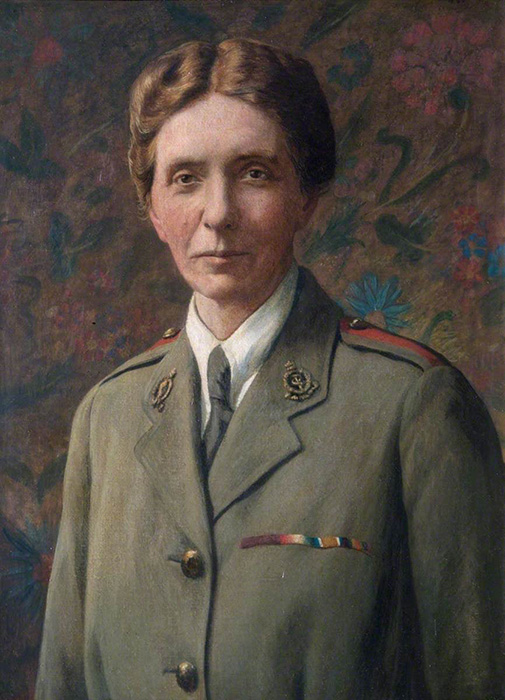How is Flora Murray – Scottish doctor, military hospital founder, suffragette and the face of a new British banknote – connected to the Royal Free Hospital (RFH), and how has her portrait helped raise £241,080 for charity?
Born in Dumfries, Dr Murray trained at the London (RFH) School of Medicine for Women. She qualified as a doctor in 1905 and worked as a medical officer and anaesthetist. Her image hangs in the RFH thanks to the Royal Free Charity who own and curate our art collection.

In 1912, with her lifelong partner Dr Louisa Garrett Anderson, she founded the Women’s Hospital for Children in London to provide healthcare for working
class children. A committed member of the Women’s Social and Political Union, she supported suffragettes recovering from hunger strikes and injuries acquired during protests.
With the onset of World War I, Dr Murray and Dr Garrett Anderson founded the feminist organisation ‘Women’s Hospital Corps’ and opened two military
hospitals in France, staffed entirely by female suffragettes. The hospitals were such a success that in 1915, the British war office invited them to set up a hospital in London for returning soldiers staffed only by female medical professionals. The hospital treated more than 26,000 seriously injured soldiers.
The doctors also carried out a significant amount of clinical and laboratory research, with seven papers being published in The Lancet. In 1917, Drs Murray and Garrett Anderson were both awarded a CBE for their work and medical efforts during the war.

Caroline Clarke, RFL group chief executive, said: “As the first institution in Britain to train women in medicine, the Royal Free Hospital drew aspiring female doctors from across the globe; we’re immensely proud that the Bank of Scotland and the Royal Free Charity have worked together to give Flora her rightful place in the pantheon of British medical history.
“Flora’s story is a reminder of the huge debt of gratitude we owe to those early agitators who refused to accept the limitations imposed by a society that didn’t believe women could or should be doctors, physicians and surgeons. Then and now, we embrace the pioneers, the innovators, and the game-changers.”
The Bank of Scotland auctioned off 186 limited edition versions raising a grand total of £241,080. The proceeds of the charity auction are to be shared equally between the bank’s charity partner Mental Health UK and the Royal Free Charity.
 Translate
Translate